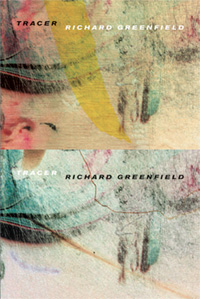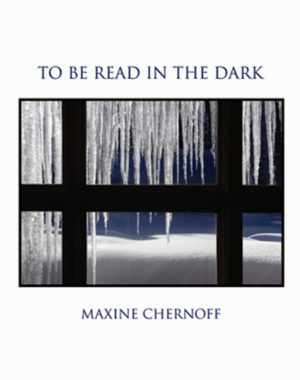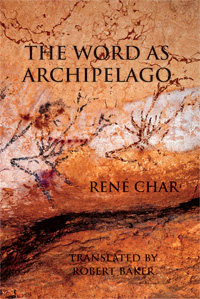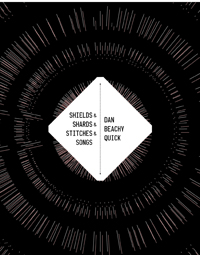Description
Beyond speaking of possession and dominance, which so often come cloaked in the placating language of stewardship; beyond speaking as merely an observer of the destruction wreaked upon the natural and social environments of this planet—Richard Greenfield’s TRACER brings us back to our senses. In an examination of the savage, and savagely beautiful particularity of our existence, this is equally and essentially a poetry that respects, even as it implicates, the mystery and peril of speaking through one’s own limited frame. A word might at one moment allude to the ‘tracer’ who exposes an image’s delicate outline and then, at the next, to the ‘tracer’ rounds that lethally illuminate a target in the dark. These lyric poems are deeply ethical and austerely honest in their implication of, and reflections upon, the limits of morality and honesty. Nonetheless, this is also a poetry that seeks to emancipate the voice of witness from the generalities of despair through its exacting engagement with this world.
In a society intent on local and global violence, the crisis of the poet emerges as the need, amidst the narrowing of imagination and empathy to the point of cold darkness and inanition (Blake’s “Newton’s Sleep”), to recall the mind in its freedom. In TRACER Richard Greenfield targets that site of willed destruction with poems that acknowledge the reality of most Americans, traumatized by far-off killings and maimings, yet still intact: “We can’t tell ourselves / from those whose loss is actual.” Hope arises from a poetry of bodily and spiritual vulnerabilities where trauma, along with human and natural beauty, seeps in unannounced as such, where speakers are nonetheless invited to grow realized in proximity to unnameable violence. Blake again: “A Skylark wounded in the wing / A Cherumbim does cease to sing.” Written in a language and affect that mostly lie stealthily below the radar of the sensational, Greenfield’s poems at times erupt in unexpected juxtapositions as a reminder of our ambient surreality. Wonderfully satisfying and memorable, these poems console, celebrate, and stimulate at the same time.
Jeffrey C. Robinson
Poetry of the outskirts—‘the old world is still out there, too/where the roads are intraworking.’ By way of open rifts and dazzling disintegrations, Greenfield traces the cracks and fissures of ordinary life in its reach to otherness. The work here is fierce, tender, and precise.
Susan Howe
About the Author
Reviews
Excerpt
Richard Greenfield is the author of A Carnage in the Lovetrees (University of California Press), which was listed as a Top Ten University Press Book by BookSense in 2003. His poetry has appeared in Boston Review, Colorado Review, Denver Quarterly, Electronic Poetry Review, Five Fingers Review, Lit, Soft Targets, Volt, and others. He is co-editor of Apostrophe Books, a small press of poetry. Born in Hemet, California, he spent his early childhood in Southern California and later lived in the Pacific Northwest. He earned a PhD in English from the University of Denver, where he was a Frankel Fellow.
From his vantage point in the rural /suburban where he “forget[s] friends” and “the calendar / is a reliable prediction,” Greenfield observes and records the simultaneous and contradictory natures of global war—mundane and extraordinary, inconsequential and monumental—and aptly traces the shapes of those wars without overtly displaying their contents or individual identities to the reader, rendering for his audience a kind of remote duplicate, an approximation, of violence. This is itself commentary on those of us who are not daily touched by war and violence, by “the old world,” and the fact that “We can’t tell ourselves / from those whose loss is actual.”
In Tracer, Greenfield upends Whitman’s paradigm of personal and national self-making, reversing it into a question of how much of the self is self-made and how much is received or constituted by the culture—particularly those darker aspects of ideology and national mythology that the speaker, we are to understand, would normally, consciously resist. Greenfield, in short, engages in a kind of personal and national soul-searching; his dissections of cultural values are also, necessarily, dissections of self, and vice versa.
Tracer, Greenfield’s second collection, is a fascinating mix between the austere and the lyrically lush. Greenfield’s political and philosophical inquiries resist allowing the reader to sit comfortably, nor do they exempt the speaker from culpability. Seeing terror lurking behind every suburban rose bush, his anxiety, however, is not one that asks us to cower. Rather, we are strengthened by beauty, by the lovely alterity that Greenfield reveals in gorgeously chosen verbs and judicious stanzaic arrangement.
Maverick
At the floating-leaf center
Leaky buckets in the brigade
Now we need a leader
We like a man walking ahead
The scale of that man is correct
He strides in half-prophet mode
Into the blue confusion of a vista
Where whatever the distance of the
Opposite shore
He rounds the lakeshore one foot priestly
The other violator
The depths sound thankless fathoms
Spare small change for the well
Or welfare





